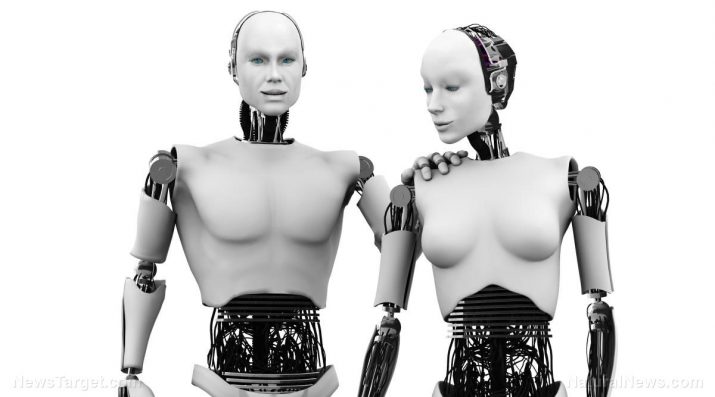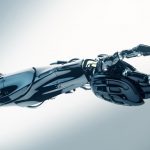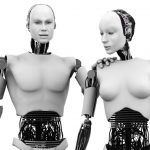
Robot expert predicts the rise of a human-bot hybrid species in the next 100 years
Monday, July 30, 2018 by Earl Garcia
http://www.futuresciencenews.com/2018-07-30-robot-expert-predicts-a-human-bot-hybrid-species-in-the-next-100-years.html

Today’s advancement in stem cell research and artificial chromosomes may help humans make babies with robots in the future, leading artificial intelligence expert Dr. David Levy claimed. According to the author of Love and Sex with Robots, the development of human-robot hybrids may well occur within the next 100 years. Dr. Levy’s predictions were based on a number of studies that focused on stem cells, bio nanotechnology and robot genetics.
The expert cited a study carried out by researchers at the Ohio State University, which developed a nanotechnology-based chip that could successfully inject genetic code into skin cells. According to the expert, this process called tissue nano transfection may enable the genetic code of a robot to be transmitted to its offspring along with human genetic code.
“Suddenly the very real possibility has appeared on the horizon of the robots of the future manipulating human skin cells to create human sperm and human eggs, and from them, using the Ohio discovery of TNT as the basis, creating an entire human baby whose embryo can be nurtured and carried through pregnancy by a mother surrogate. This is how I believe it will be possible, within the foreseeable future, for humans and robots to make babies together,” Dr. Levy told Daily Mail online.
Dr. Levy’s predictions were presented at the International Congress on Love and Sex with Robots in London.
Sex robot creator: Men might one day walk their sex bots to the aisle
Other robotics experts have expressed similar thoughts on the possibility of creating human-robot hybrids. In October last year, Sergi Santos, inventor of the ‘Silicon Samantha’ sex robot, predicted that humans may one day marry their machines using a technology that would enable them to produce offspring. Santos discussed that instead of developing machines that can give birth themselves, he can otherwise merge an android’s personality with the beliefs and characteristics of its human partner.
The Spanish scientist further explained that a computer software could be used to create a new artificial intelligence-based brain for the offspring based on the information obtained from both the machine and its human partner. Santos also claimed that 3D printing could be utilized to create the body of the offspring. (Related: Researchers look for ways for humans to maintain control over artificial intelligence.)
“Using the brain I have already created, I would program it with a genome so he or she could have moral values, plus concepts of beauty, justice and the values that humans have. Then to create a child with this robot it would be extremely simple. I would make an algorithm of what I personally believe about these concepts, and then shuffle it with what she thinks and then 3D print it,” Sergi said.
Santos, an expert in various fields — including electronic engineering, nano technology, AI, material sciences and applied materials — acknowledged that the prospect of marrying machines might raise some concerns. However, he countered that robots may inherit the planet in the future and humans may not even be given a second thought.
See FutureScienceNews.com for more coverage of robotics and AI technology.
Tagged Under: Tags: AI, artificial intelligence, badscience, future science, human-robot hybrid, human-robot relationship, robot, robotics, technology





